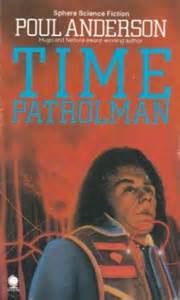The Wanderer and Ulrica withdraw to confer privately. To advance the plot, Poul Anderson need only tell us what they say. But first he presents the following details:
"Dusk was closing in, blue-gray in the open windows, murky in the room. Coolness bore smells of leaf and soil, trill of nightingale,..." (Time Patrol, p. 429)
- appealing to four senses. Only taste is lacking. Carl Farness is gray-haired and blue-cloaked so maybe, as the Wanderer, he merges into the blue-gray dusk?
Carl is the first person narrator of the passages set in other centuries but is described in the third person in the episodic fourth century narrative. These latter sections usually have a collective Gothic point of view, e.g.:
"Folk had flocked to the hall..." (p. 428)
However, the private conversation has to be recounted from the point of view of one of its two participants. Thus, the introductory details continue:
"...but those seemed distant, not quite real, to Ulrica." (p. 429)
Later, Swanhild and Randwar confer. Again, we are treated to more than just their dialogue:
"She and he walked together down a lane where blackberries grew, trees soughed and caught sunlight, birds sang. Her hair flowed golden, her eyes were big and heaven-blue in the fine-boned face, she moved like a deer." (p. 431)
Two senses - and the beauty of Swanhild.
Later, when she is murdered:
"Sibicho...yelped: 'She calls on her witchy ancestor? Suffer her not to live!'" (p. 445)
- thus echoing a Biblical commandment that Sibicho could have heard from Gothic Christians.

No comments:
Post a Comment